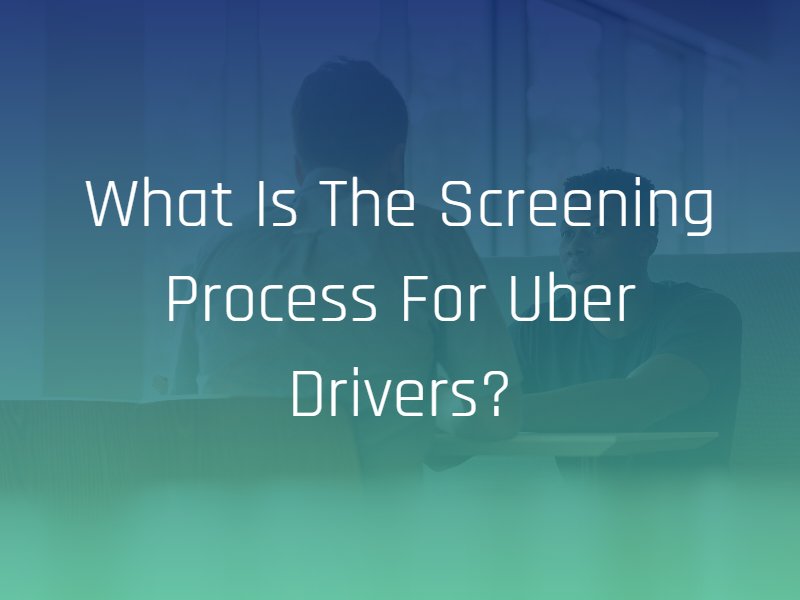Rideshare apps are a popular transportation option for millions of people around the world. Requesting a ride through a smartphone app is convenient and affordable—but it can also be a risky decision. Many passengers have reported their Uber drivers for violent and reckless behaviors, such as physical altercations, dangerous driving, and sexual assault. It is the responsibility of rideshare companies like Uber to conduct robust, comprehensive background checks to keep everyone safe on the road.
Uber’s Background Check Requirements
In order for a person to drive with Uber, he or she must pass a background check in accordance with state and local laws. Uber requires its drivers to undergo screening each year, but in certain cities, some contractors may need to receive a background check more frequently. Uber also enrolls its drivers in a new offense notification program, which notifies the company if a driver has a change in his or her criminal history.
Drivers must provide consent for these screenings, which Uber obtains when a person signs up to drive for the company. In some cases, this consent allows Uber to request multiple background checks during a driver’s tenure. Prospective drivers will need to provide a valid Social Security number and their driver’s license prior to this screening process.
Uber uses a third-party company known as Checkr to conduct its screening processes, which may take between three to five business days or longer to conclude, depending on a driver’s criminal history. Complex background checks involving court processes, for example, may take longer to complete.
What Does an Uber Background Check Look For?
Uber’s driver background checks include two separate types of review: a Motor Vehicle Report (MVR) review and a criminal history screening. Drivers do not need to undergo a credit check to drive for Uber. State and local laws, along with Uber’s internal safety standards, heavily dictate the criteria involved in these background checks.
Uber generally uses the following criteria when determining a driver’s eligibility.
- MVRs examine a potential contractor’s driving history, including traffic offenses. For a driver to give rides with Uber, he or she must have a valid U.S. driver’s license and at least one year of licensed driving experience in the U.S., or three years of licensed driving experience if the driver is under the age of 23. In addition, the license must be active and free of violations that could disqualify the driver from working with Uber. These may include major driving violations or a recent, established history of minor violations.
- Criminal background checks ensure a driver does not pose a safety threat to Uber passengers. Although requirements may change with local laws, certain types of criminal convictions will disqualify a driver from working with Uber, such as felonies, sexual offenses, and violent crimes. Pending charges may also disqualify a driver, unless the court drops the charges or acquits him or her of the crime.
While these background checks generally protect Uber passengers from harm, dangerous drivers are present within the company’s rideshare fleet. It is possible to encounter a driver who engages in violent and dangerous behavior, even with these security standards in place.
If you have experienced violence or assault at the hands of an Uber driver, you are not alone. Hundreds of former victims are working with rideshare attorneys to seek justice against the perpetrators of these violent crimes. Speak with a rideshare sexual assault lawyer as soon as possible to discuss your legal options and plan your next steps.

